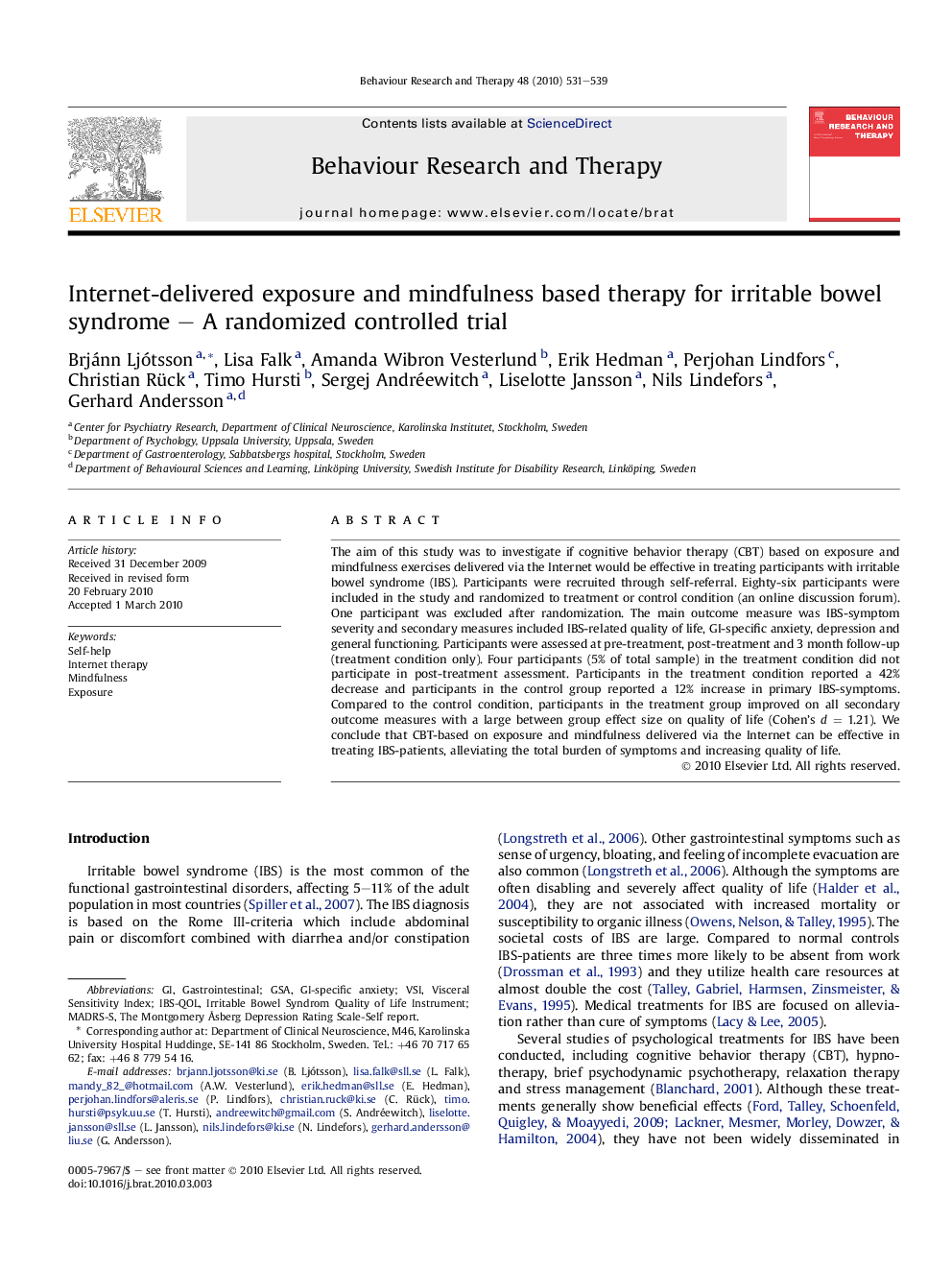| Article ID | Journal | Published Year | Pages | File Type |
|---|---|---|---|---|
| 902134 | Behaviour Research and Therapy | 2010 | 9 Pages |
The aim of this study was to investigate if cognitive behavior therapy (CBT) based on exposure and mindfulness exercises delivered via the Internet would be effective in treating participants with irritable bowel syndrome (IBS). Participants were recruited through self-referral. Eighty-six participants were included in the study and randomized to treatment or control condition (an online discussion forum). One participant was excluded after randomization. The main outcome measure was IBS-symptom severity and secondary measures included IBS-related quality of life, GI-specific anxiety, depression and general functioning. Participants were assessed at pre-treatment, post-treatment and 3 month follow-up (treatment condition only). Four participants (5% of total sample) in the treatment condition did not participate in post-treatment assessment. Participants in the treatment condition reported a 42% decrease and participants in the control group reported a 12% increase in primary IBS-symptoms. Compared to the control condition, participants in the treatment group improved on all secondary outcome measures with a large between group effect size on quality of life (Cohen’s d = 1.21). We conclude that CBT-based on exposure and mindfulness delivered via the Internet can be effective in treating IBS-patients, alleviating the total burden of symptoms and increasing quality of life.
